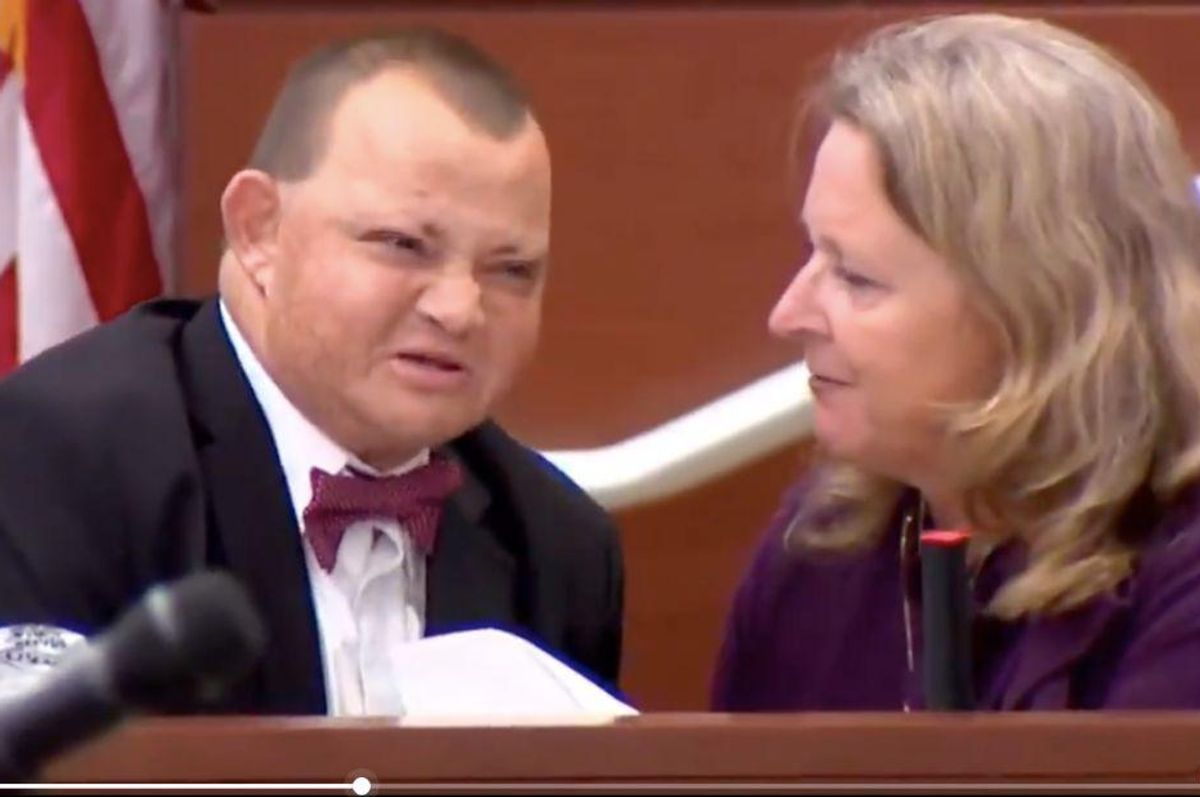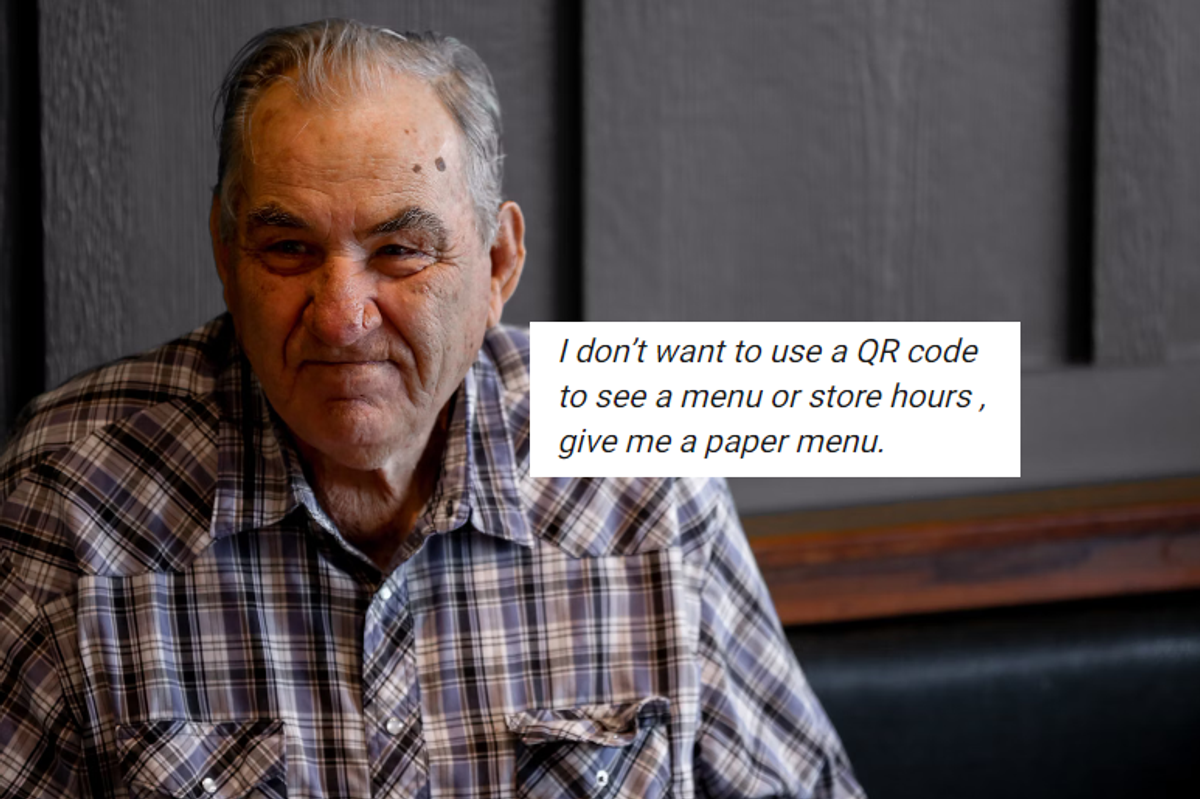In just two sentences, Corey Hixon made a moving case for gun control in Parkland trial
"I miss him."

Corey Hixon's father was killed in the Parkland, Florida, school shooting in 2018.
When we debate guns and gun violence in this country, we tend to get bogged down in statistics and often argue over semantics.
There is zero question that the U.S. is a complete outlier among developed nations when it comes to gun deaths, and even more of an outlier when it comes to mass shootings. No other high-income nation puts their children through active shooter drills at school. None of our peer countries have firearms as the leading cause of death for children and teens like we do. (In fact, it's not even in the top five causes of death in any other high-income nation.)
And yet, no matter how many times we experience gunmen massacring schoolchildren, no matter how many shocking or sobering stats we see, a not-insignificant portion of our country either denies that there's a problem or denies that there's anything we can do about it.
Because our debates over this issue can get unnecessarily complicated, it's good to be reminded of the simple truth that guns cause unnecessary loss, grief and pain. And nowhere has that been made more clear than in Corey Hixon's brief testimony at the trial for Nikolas Cruz, the murderer who shot and killed 17 people at Marjory Stoneman Douglas High School in Parkland, Florida, on Feb. 14, 2018.
One of those killed was Corey Hixon's father, Chris Hixon. He was the athletic director at the school and was shot and killed while trying to disarm the gunman. According to Florida ABC affiliate Local 10, Hixon was one of the last to speak before the court. Rather than have him read a victim impact statement, the judge asked Hixon, who lives with Kabuki syndrome, what he wanted to share about his father.
In just two sentences—each of which was followed up by an emotional hug with his mom—Hixon distilled the emotional reality of our nation's gun problem and brought home what gets lost when we keep doing nothing.
Watch:
The whole room felt that "I miss him!" But the simple description of walking to get donuts together and walking back home every Saturday is just gut-wrenching. It's those little things, the everyday connections and joys and time spent together, that gun violence rips away.
This isn't the first time Corey Hixon has touched people's hearts. A video of him giving Joe Biden a hug at his father's funeral when Biden was vice president went viral during the 2020 election season.
People try to say that gun control won't stop mass shootings, but can't we at least try? Nikolas Cruz legally purchased the AR-15-style rifle he used to terrorize and slaughter students and faculty at that high school. He was a legal gun owner, right up until he wasn't. Though he had no criminal record, red flag laws—which Florida enacted in the wake of the Parkland shooting—could have prevented him from being able to legally purchase or own a firearm.
We have plenty of statistical evidence that gun laws do work. But unfortunately, statistics aren't likely to change people's minds. At this point, if appealing to emotion by sharing the grief families have to live with is more effective to persuade, fine. The emotions are real and the stats are sound, so if that's what it takes to get people to accept reality and do something about it, so be it.
No child should have to go through what Corey Hixon has. And no American should look away from his pain when he truly could be any of us.






 A woman is getting angry at her coworker.via
A woman is getting angry at her coworker.via  A man with tape over his mouth.via
A man with tape over his mouth.via  A husband is angry with his wife. via
A husband is angry with his wife. via 
 Some Boomer grandparents are being called out for "gramnesia".
Some Boomer grandparents are being called out for "gramnesia".

 A woman gets a tattoo.
A woman gets a tattoo. Boy playing on the computer.
Boy playing on the computer.
 Grumpy boomers aren't wrong about everything. Photo by
Grumpy boomers aren't wrong about everything. Photo by  Even the young people can't stand QR codes. Photo by
Even the young people can't stand QR codes. Photo by  Everything, even fast food, has gotten out of control expensive. Photo by
Everything, even fast food, has gotten out of control expensive. Photo by